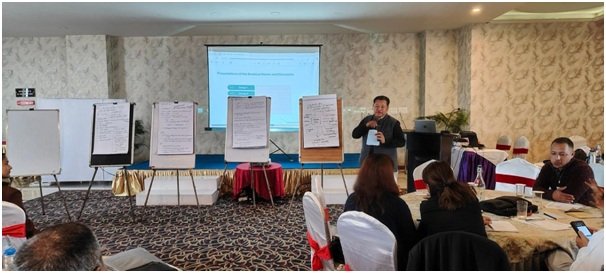Over 70 participants from diverse backgrounds, representing states such as Assam, Arunachal Pradesh, Manipur, Meghalaya, Mizoram, Nagaland, Sikkim, and Tripura, convened in Guwahati on January 23-24, 2025, to discuss revitalizing agroecology with a focus on indigenous stewardship, food sovereignty, and resilient futures.
This event, organized by the Consortium for Agroecological Transformation (CAT), marked the fifth convening of its North Eastern India Chapter, as part of a national initiative to scale up farmer-centric, landscape-based agroecology transitions. Partners for the convening included India Climate Collaborative, Bharat Agroecology Fund, North-East Network (NEN), NESFAS, SeSTA, Farm to Food, C-GEM, and the Better Life Foundation.
The two-day convening explored several key themes, such as landscape-level agroecological models, youth involvement in agroecology, local governance for driving transformation, assessment tools for agroecology, natural resource conservation in the current extractive paradigm, and market connections for the economic sustainability of agroecological enterprises. The participants included agroecology practitioners, civil society leaders, NGOs, state government officials and donors.
BK Sohliya, Executive Advisor and Chairman of the Meghalaya Farmers’ (Empowerment) Commission, expressed the commission’s commitment to improve the livelihoods of farmers in Meghalaya.
“Agroecology is the need of the hour, and we will provide all possible support to farmers. We are also open to providing support to other states as well,” Sohliya said.
Gratia E. Dkhar, from NESFAS in Shillong, highlighted the importance of collaboration.
“Participating in this Regional Convening of the Consortium for Agroecology Transformation enables grassroots organizations like ours to collectively champion communities, nature, and climate, grounded in respect for biodiversity and the wisdom of indigenous people,” Dkhar said.
Dkhar also said that the consortium has provided all with a valuable platform to connect with like-minded organizations, explore scalable models, and foster collaboration.






























